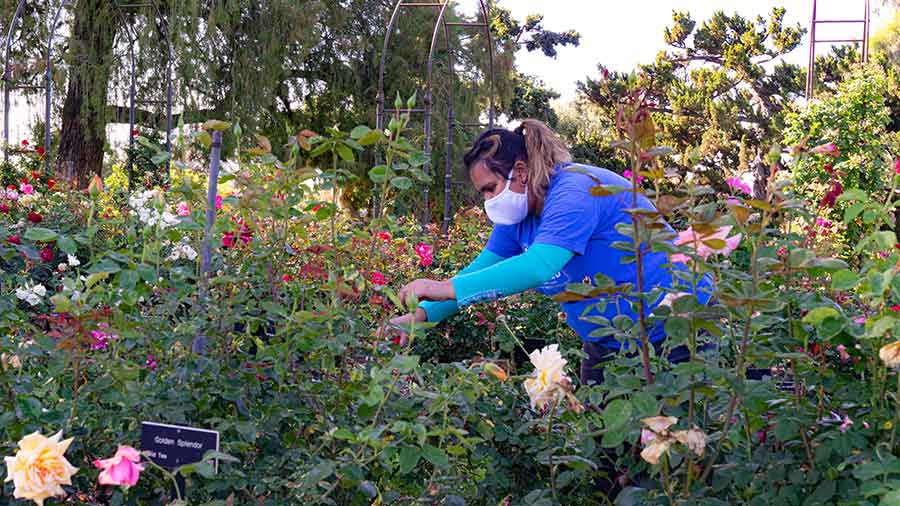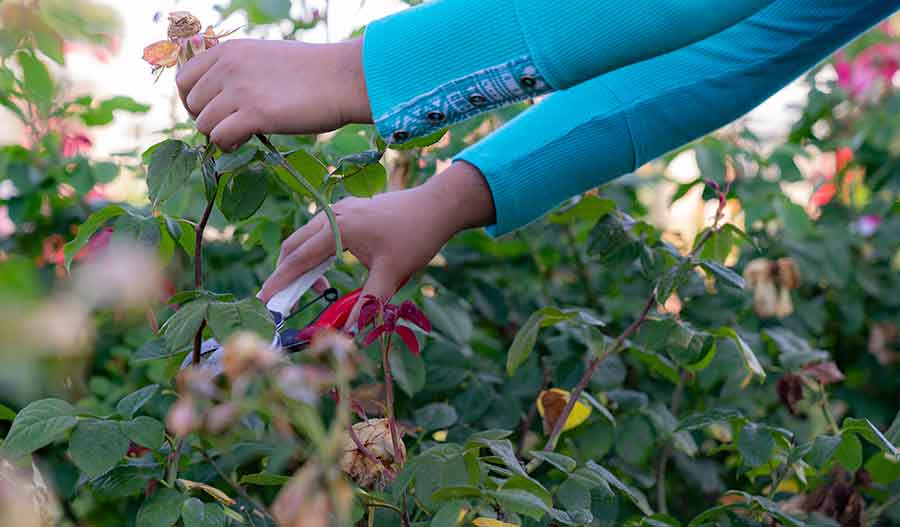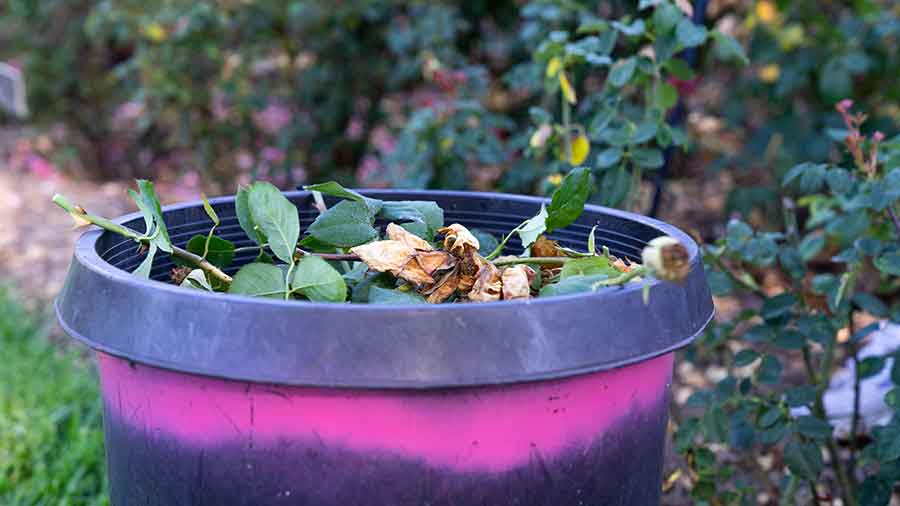The Huntington’s blog takes you behind the scenes for a scholarly view of the collections.
From Library to Gardens with Karina Sanchez
Posted on Wed., June 3, 2020 by

Reader Services Coordinator Karina Sanchez could no longer work in the Library when it was closed in March due to the COVID-19 pandemic. She seized the opportunity for a work reassignment in The Huntington’s botanical gardens, where she acquired new skills, such as how to prune roses. Photo by Aric Allen.
When The Huntington’s Centennial Celebration was being planned for this year, no one could have envisioned the historical moment through which we are now living. As a global pandemic brought normal life to a halt, The Huntington closed to visitors. It’s been nearly three months.
But in the intervening period, the gardens, tended by essential workers, continued to grow and blossom with the arrival of spring. While many staff members have been able to do their jobs remotely, some employees whose work was on hiatus because of diminished activities received work reassignments. We asked one of them, Karina Sanchez, to tell us about her experiences working in the gardens.
Verso: How long have you been working at The Huntington and what do you do?
Karina Sanchez: I have been at The Huntington for a little over a year now. I work in the Library as the Reader Services coordinator. I help our readers (what we call our scholars) and research fellows navigate our collections and reference library. I have also been helping our reference library develop research guides for our collections and library resources.

Sanchez says she has learned from technical gardener John Villarreal that by pruning, she stimulates new growth, keeps the rose bushes neat, and emphasizes the beauty of newly bloomed rose heads. Photo by Aric Allen.
Verso: How did you get involved with working in the gardens?
KS: When the closure happened, my supervisor let our staff know that we could help in the gardens. One of my coworkers and I decided to take up the opportunity. This allowed us to gain a new perspective on The Huntington. When The Huntington closed in March, more than 1,000 volunteers were no longer able to come on site, so the gardens lost a good bit of the care they had previously received, and the gardeners suddenly had a lot more work to do. So that’s where we came in.
Verso: What kinds of work have you done in the gardens?
KS: Each week, we get to work in a different garden. I have worked in the Japanese, Chinese, Desert, Rose, and Herb gardens, the Brody California Garden, and at the Ranch Garden. I have been able to gain a different understanding of each of these areas and learn how they are maintained. I’ve done weeding, watering, pruning, and repotting, and I’ve gained such appreciation for how roses are bred and selected. I have also learned about the different uses of the herbs, and the different fruits and vegetables we grow. I will take this new knowledge back home to develop my own little garden.

Pruned rose stems and leaves fill a container in the Rose Garden. Photo by Aric Allen.
Verso: Tell us more about your work in the Rose Garden.
KS: Technical gardener John Villarreal taught me the process of pruning. As I stand among the rose bushes, I look for rose heads that have lost their petals. I then look along the stem and find a leaf that has smaller leaflets. I check if there is a bud growing between the leaf and the stem. If so, I cut above that bud to allow new growth. From John, I’ve learned that by pruning, we stimulate new growth, keep the rose bushes neat, and emphasize the beauty of newly bloomed rose heads.
Verso: What insights have you gained from doing garden work?
KS: As a non-Botanical staff member, I always thought that the gardens were beautiful. I knew that the Botanical staff worked hard to maintain the gardens, but I had only a limited understanding of what that entailed.

An 'America' rose blooms in the Rose Garden—a testament to the collaborative efforts of Huntington gardeners, volunteers, and reassigned staff. Photo by Aric Allen.
KS continues: I have learned so much and have a new appreciation and love for the gardens. The work that is being done requires a lot of knowledge and is physically hard. I see how much the Botanical staff love what they are doing and how much work they put into keeping the gardens beautiful.
I am grateful that I have seen the blooming roses, learned about new plants, and watched all the wildlife that live on the property—in the soil, in the sky, and throughout the gardens. When the gardens open once again, it is important for staff and visitors not only to enjoy the beauty but to understand the hard work that is put into taking care of acres and acres of beautiful vegetation and the ecosystem that is unique to The Huntington.
Kevin Durkin is the editor of Verso and the managing editor in the Office of Communications and Marketing at The Huntington.